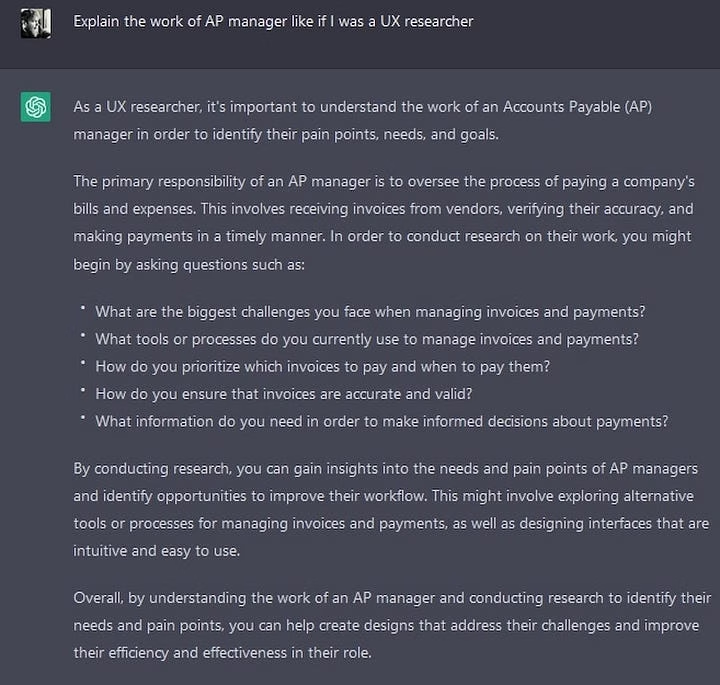
How to Implement AI in Ecommerce: A Complete Guide 2025
Are you interested in how to implement AI in e-commerce or how does AI work in online shopping? How do you implement AI on a website, or how is AI reshaping eCommerce?
This guide discusses various implementations of AI in the E-commerce industry in detail and answer the most popular and exciting questions about AI in e-commernce.
Let's get started!
What is AI?
AI or Artificial Intelligence is science, technology, or computer software that performs tasks and thinks like humans. AI software collects and analyzes data, information, and algorithms.
What is AI in E-commerce?
AI in E-commerce collects and analyzes information about customers and buyers about their previous purchases, search results, habits, and preferences in order to give personalized recommendations and product choices.
What is AI for Businesses?
AI helps businesses to understand their customer's behavior and shopping patterns, purchase history, and trading products.
In this article
- Implement AI in Ecommerce
- Steps to Get Started with AI in Ecommerce Solutions
- Frequently Asked Questions on Implementing AI in Ecommerce
The AI-enabled Ecommerce solutions market value is projected to reach 16.8 billion US dollars by 2030.
The fast adoption of cloud platforms, increasing use of machine learning-based applications, cost-effective software development procedures, and easy access to real-time data are a few main growth drivers of the AI e-commerce solution industry.
If you're looking to implement AI in your Ecommerce business and need professional help to do it, you can partner with DevTeam.Space. Our AI developers will help you implement your project, whether it's creating an AI-powered E-commerce solution from scratch or adding AI-enabled features to an existing system.
Now, let's explore how to implement AI in e-commerce.
Implement AI in E-commerce/ implement AI on a website
Some popular and effective ways to implement artificial intelligence in e-commerce include the following:
Smart Visual Search Capabilities
With the dramatic digital transformation, traditional enterprise search is no longer efficient enough to provide comprehensive web coverage. It negatively affects the user experience on your website. Hence, there is an indispensable demand for a more advanced search method.
AI technology provides a feature of contextual understanding that is available in various brand searches to boost efficient data discovery and insights into your business processes.
Artificial Intelligence search technology helps satisfy your users’ informational needs and provides the most relevant and helpful recommendations.

62% of millennials and Gen Z users want visual search features more than any other technology. While your competitors are leveraging AI-powered smart search solutions for the search feature to get to the information most efficiently, you can’t afford to fall behind.
Besides, it enables image and voice recognition in AI-powered search engines, which facilitates the search process for users.
Personalization/ E-commerce personalization
The current advancement of technology has taken the business prospect to the next level. Notably, the typical application of AI technology in e-commerce is to create a personalized customer experience on e-commerce websites.
AI-driven personalization has solved the challenges many e-commerce businesses have to face in personalizing their customer experience. For example, some have delighted customers and boosted their email engagement by 3X with AI personalized videos at key touchpoints in the customer journey.
These companies embedding AI technology into their business can learn what their customers desire precisely and provide them with relevant recommendations that go in line with their preferences.
More particularly, artificial intelligence in e-commerce, along with the search engine, helps you keep track of your users’ buying patterns, view history, and identify users’ preferences to offer them complementary products.
The customer experience in your store is far more personal and well-targeted when customers get precisely what they need relevantly. As a result, your online store will experience a significant rise in sales. 56% of customers expect service personalization by businesses.
An example of an e-commerce company that has successfully embraced artificial intelligence and the seamless customer experience in e-commerce is Pura Vida Bracelets, an online Shopify bracelet retailer.
After launching personalized recommendations on its website, the company generated 1.6 million clicks and an average of 7.9% recommendations conversion rate.
Chatbot/ E-commerce chatbots
Integrate an AI chatbot into an e-commerce website to create a better shopping experience! With the help of AI and machine learning, specifically natural language processing technology, chatbots are becoming a phenomenal tool for taking over customer interactions and digital advertising in the e-commerce sector.
Many companies and businesses have been integrating chatbots and virtual assistants into their E-commerce websites and popular social media platforms like Facebook Messenger, Instagram, and Telegram chat software to create a better shopping experience.
For example, Nike has used AI Chabot in its retail messenger campaign, which helps the company boost the conversion rate substantially.
AI-powered chatbots can help businesses reduce customer service costs by 30%.
Not only do chatbots and virtual assistants reduce the human resources in customer service support, but they also help online stores acquire new customers, create a consistent interaction with customers as well as perform automated tasks that can’t be done manually.
By using chatbots, it is easier to send mass messages to different customers at once. Chatbots and virtual assistants can automatically answer regularly-asked questions saving significant time of store staff from answering mundane customers' inquiries.
Product Description/ Ecommerce product description

Artificial Intelligence is already used widely in automated content creation. E-commerce businesses can utilize artificial intelligence to optimize product descriptions.
If you want to survive in this ever-changing technology world, it’s critical to keep every aspect of your business updated, especially the product-related content on your website.
There’s nothing to discuss if your store has a small number of products. The updating can be done quickly, even by manual manipulation. However, if there are mass products to deal with, you need an assistant tool.
AI resolves this problem by automating the process of writing detailed and precise descriptions for products.
Rather than merely copying the information from the manufacturer’s site, artificial intelligence in ecommerce can scour the Internet to identify the most relevant information about products that the store offers.
48% of consumers start their online shopping search from search engines.
AI tools like ChatGPT have made the process of writing product descriptions and optimizing them for SEO more simple and effective. ChatGPT can help research the right keywords for a particular audience and industry.
ChatGPT can analyze content on top-performing websites with product listings and identify keywords that can help your products rank higher on search engine results.
It can write product descriptions based on your given prompts and automatically include exact frequent keywords and information online shoppers are looking for.
Product Recommendations/ Ecommerce product recommendations
E-commerce companies can create a highly personalized shopping experience by utilizing AI-driven product recommendations.
With the help of some AI recommendation engines or recommender systems, you can acquire precise and valuable insights to foresee what your online shoppers will pick up from your online store.
AI can analyze your products, customers’ orders, and other customer data and yield the most useful results for you to understand your customer preferences.
Product recommendations account for up to 31% of e-commerce website revenues. AI identifies the potential and unique customer/product relationship, establishing a bright prospect in sales for your company.
With the fast-growing quantity of information on the Internet, an eCommerce business must provide the audience with useful information that meets their needs and preferences.
Some best practices of AI-powered recommendations are “Customers who bought this item also bought” from Amazon and “People you may know” from Facebook.

Filter Fake Reviews/ track fake reviews
The review is becoming one of the determining factors in customers’ purchasing decisions and significantly influences customer behavior toward online sales.
The Spiegel Research Center report shows that 95% of shoppers read online reviews before purchasing. Also, the conversion rate can increase by up to 270% when displaying product reviews on e-commerce platforms.
However, to take advantage of reviews to achieve such great results, business owners need to consider various factors making the reviews effective.
Along with the number of reviews, the star rating, or the source of reviews, the nature and trustworthiness of the review content is a priority in customers’ concerns.
You can evaluate a review and figure out whether it is legit. But in some cases, human evaluation seems to be imprecise to qualify a review and detect if someone faked it. And that’s when AI systems come in to solve the problem.
With AI, you can develop a system employing a natural language processing method to detect unusual patterns of text, writing style, and formatting.
An internal scoring system will rate the reviews and notify you of any suspicious content, including duplicates. You can easily filter out reviews that are written perfunctorily and display authentic ones.
Online shoppers can make the right purchasing decisions just like in-store shopping customers based on verified customer purchase reviews in your stores.
Prevent Counterfeit Products/ counterfeit goods in e-commerce
E-commerce has become a vital part of our daily life. The development of technology and the Internet make shopping more comfortable and convenient, but it also creates the right conditions for selling counterfeit goods.
Many big online retailers and ecommerce businesses already encounter this issue. Amazon warned its investors for the first time that they may be unable to prevent sellers in their stores from unlawful and pirated selling products.
This has led to concerns of many brands and shoppers about whether there is a system good enough for them to search for counterfeit products based on reliable resources.
Once again, AI is an ideal answer to the problem. Many large firms in China have already implemented this method. For example, in 2017, Alibaba and 20 other firms launched the “Big Data Anti-counterfeiting Alliance.”
Their ultimate goal of using AI is to go through customer reviews, product listings, and patterns to identify counterfeit products. This approach brought about a good result, with about 230,000 infringed stores closed down in Taobao. This year, Amazon has run its “Project Zero” to fight counterfeit products.
Improve Customer’s Shopping Experience
How to improve e-commerce customer shopping experience? Creating an excellent online shopping experience for users and an efficient sales process has never been easier due to implementing AI. User-friendliness is one of the most decisive factors in a successful eCommerce site.
Businesses can implement AI to quickly create a feature-based interface for their website and apps to uplift the user experience.
Applying AI enables the UX team of an e-commerce company to do their tasks more effectively. They can make use of metrics like A/B tests, data usage, and heat maps to enhance the user experience on their store site and products.
The Ecommerce store can customize the web design and create a more efficient sales process based on the customer specifications and behaviors acquired from AI data analysis.
AI tools like ChatGPT can also help with creating user personas. You can ask ChatGPT to create a UX persona for a user type in the specific industry.

Pricing Optimization/ E-commerce price optimization
As 60% of shoppers choose to buy from retailers who offer optimal prices, you should think about applying Artificial Intelligence to your pricing optimization. It can help you determine appropriate prices that satisfy online shoppers and keep your profit margins.
AI eases the work efforts of your managers to set optimal prices for a massive number of products through its superhuman analytical and computational abilities.
With the self-learning algorithms scanning the vast amount of data, AI-powered business intelligence can set the optimal prices based on the stock-keeping unit, product portfolio, point of sale, and customers.
If you want to adopt AI in pricing optimization successfully, prepare the necessary data first, hire an outsource provider, or build an in-house team, then select products for AI to indicate optimal prices.
Keep track of the entire process and measure the results to get your benefits from this innovative technology.
Read our blog on 5 ways AI can change your Ecommerce business.
Analytics/ E-commerce analytics
AI-powered analytics can give your business the ability to burrow deep into data and focus on initiatives. Basic analytics that show what happened and what you have been doing are no longer sufficient.
You need help from AI to get in-depth insights from the big data that your potential customers generate. Businesses analyzing big data have reported an average of 8% increase in revenue and a 10% reduction in costs.
An ever-growing industry requires you to stay relevant to every aspect of the market and your customers by getting on top of data and making use of AI to go through every area of your business.
Also, read our guide on building an Ecommerce solution efficiently.
Steps to Get Started with AI in E-commerce Solutions
We recommend the following steps to start integrating AI into E-commerce services:
- Create business goals and define how artificial intelligence technology will help you attain these goals. For example, you might plan to use AI for price optimization, product discovery, customer support, etc.
- Curate the skills, expertise, and resources to build and operate AI-based e-commerce solutions. Partner with an expert AI development company to hire developers with the following skills:
- Data science and machine learning for developing AI models that can analyze large amounts of data;
- Software development, including Python programming language, relevant frameworks like PyTorch, etc.
- Data management and analytics to handle and process vast amounts of e-commerce data;
- E-commerce domain knowledge with an understanding of market dynamics, customer behavior, etc.;
- UX/UI design to create intuitive and user-friendly user interfaces for e-commerce platforms, etc.
- Design, develop, test, and deploy AI solutions for your Ecommerce website. Monitor AI performance and optimize it to align with your business goals as defined initially.
Planning to Adopt an AI Solution for Your E-commerce Business?
Artificial Intelligence has paved the way for e-commerce businesses to maximize operational efficiencies and profits. Our blog discusses how AI can help you increase your business revenue by many times.
Many firms are ready to embrace the power of AI to make their businesses thrive in the e-commerce industry.
However, some others haven’t trusted this technology to make a complete transformation because of possible risks. To start a better move to AI, don’t be rushed.
When it comes to implementing AI technology, it is better to partner with experienced software engineers, given the complex nature of the AI domain.
If you are looking for experienced software developers to help you implement AI in your Ecommerce platform, then DevTeam.Space can help you.
Developers at DevTeam.Space are experienced in developing market-competitive AI-powered solutions for ecommerce retailers.
DevTeam.Space is an innovative American software development company with over 99% project success rate. DevTeam.Space builds reliable and scalable custom software applications, mobile apps, websites, speech recognition systems, ChatGPT, and AI-powered solutions and conducts complex software integrations for various industries, including finance, hospitality, healthcare, music, entertainment, gaming, banking, e-commerce, construction, and education software solutions on time and budget.
You can get in touch via this quick form describing your initial AI requirements for e-commerce platforms.
One of our technical managers will get back to answer your questions and connect you with software developers with relevant AI and data science skills.

Jade is a content creator at Avada Commerce. She researches and writes on many aspects of Ecommerce and AI-related topics and has been practicing new skills to excel in content marketing.
Frequently Asked Questions on Implementing AI in Ecommerce
To implement AI in eCommerce, define your business goals and how AI can help you achieve them effectively, collect relevant data from multiple resources, train AI models on your business data, and perform necessary integration with the Ecommerce platform. Evaluate and optimize your AI model performance continuously.
AI is already being used to improve the Ecommerce sector in multiple ways, from inventory management and customer segmentation to price optimization and customer experience.
ML, or machine learning, is a subset of AI. It refers to a system's ability to learn to improve the accuracy of its results by cross-referencing new results with past ones without explicit programming.
Related AI Software Development Articles
Learn more about AI software development from our expert articles:
- How to Interview and Hire AI Developers
- What is the AI Software Development Life Cycle?
- What are the types of AI?
- 7 Best AI Software Development Tools in 2025
- 10 Best AI Tools Of 2025
- 10 Best AI Apps in 2025
- 5 Ways AI in the automotive industry is making an impact
- How to Build an AI Platform like Pypestream for the Insurance Industry?
- How Is AI Transforming the Product Development Process?
- How to Leverage AI in Healthcare
- How to Implement an AI solution for Enterprise Risk Management?


